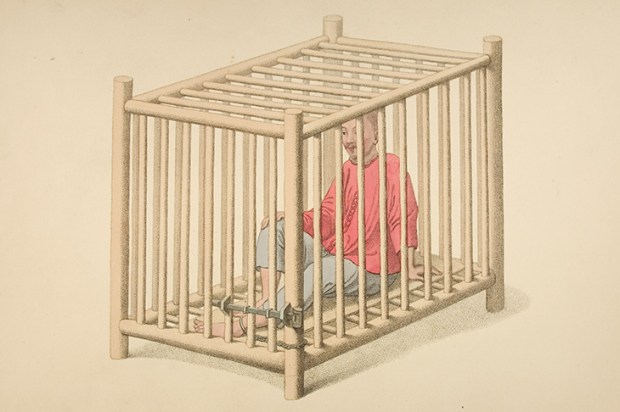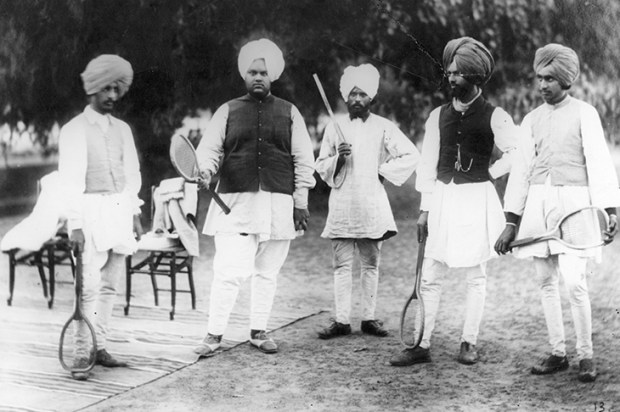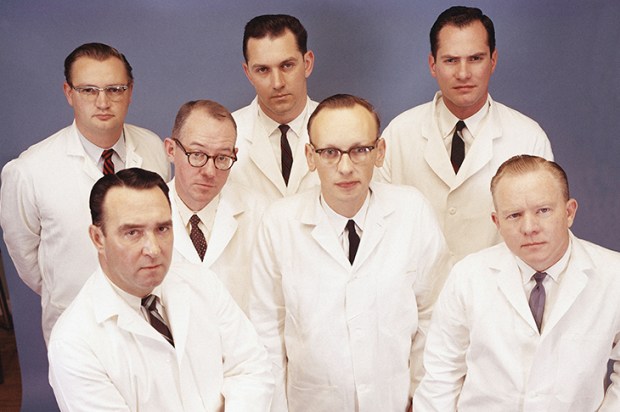It is easy to miss the fact that a good deal of slang has a long-forgotten rhyming component (and is not always in the best of taste). This struck me when a Speccie reader asked for the origin of ‘take the mickey’– meaning to make fun of someone or speak mockingly of them. This is of British origin and the earliest citation is from 1948. But who was the Mickey being referred to? The answer seems to be – no one is sure. However, the most common suggestion is that the full name was Mickey Bliss. If that’s correct then the expression is short for ‘taking the Mickey Bliss’ which is rhyming slang. I won’t tell you what it rhymes with – since I think you know. But you see what I mean about not always being in the best of taste.
Then there’s that name for the sound called a ‘raspberry’. The long-forgotten rhyming slang component is found in the full expression: ‘raspberry tart’ (which rhymes with a bodily function). Rhyming slang is great fun. Until the rhyming component is forgotten, and people have no idea why they say what they say!
I have bad news for you – you are living in ‘meatspace’. Arwa Mahdawi writing in the Guardian addressed herself to her ‘fellow humans’ as ‘a genuine member of the species homo sapiens’. This, she explains, means that she is ‘a flesh-and-blood person operating in meatspace’ and not some AI-powered robot. In other words, ‘meatspace’ means: ‘The physical world, as opposed to cyberspace or a virtual environment’ (Oxford). The Oxford goes on to say the word is found in print from about 1995 onwards. And according to the Urban Dictionary the word originated in ‘cyberpunk fiction’ (a subgenre of science fiction typified by a bleak, oppressive society dominated by computer technology). ‘Cyberspace,’ on the other hand, is all the stuff that happens online. You know what I mean – that unreal world in which people pretend that those who click on their Facebook page are their ‘friends’. The alternative, however, should not be called ‘meatspace’ – it should be called the real world! Yes, I suppose we are made of meat… well, our physical bodies are but we are more than our bodies. Each of us is also a soul – a person. And that is not in ‘meatspace’. Do we need to coin a new word – ‘soulspace’? Or is it time to slow down on coining new words and just stick to the obvious – real people living in the real world?
Our Energy Minister, Chris Bowen, has often puzzled me. Why hoot and clown in parliament about nuclear power while defending weather-dependent energy? However, I have come across a possible explanation. Is he suffering from ‘MDD’? This initialism names a newly defined psychological problem— ‘Maladaptive Day Dreaming’. This condition was drawn to my attention by Mary Wakefield (here in the pages of the Speccie), who explained that ‘MDD’ was identified and named only a few years ago by Eli Somer, a clinical psychologist at the University of Haifa. It seems that sufferers from ‘MDD’ simply don’t live in the real world. They function as if their imagined view of reality is the one that applies. They simply fantasise about what the world is like, and how it works. Disconnected from reality – that about sums it up. If people live in their daydreams, what they do in the real world around them won’t make a lot of sense. A paper in the National Library of Medicine defines ‘MDD’ like this: ‘A strategy to cope with distress that leads to uncontrollable absorption in fantasy, social withdrawal, and neglecting aspects of everyday life.’
Does this condition explain the behaviour of Chris Bowen? He keeps spending more and more on so-called renewable energy, getting less and less by way of a result (costing us taxpayers buckets of money) and yet still appears to sincerely believe that (as he says) ‘renewables are the cheapest and most reliable form of energy’. Meanwhile, back in the real world, renewables are neither cheap nor reliable. Is he suffering from ‘MDD’?
We are told that 2025 will see a battle between RTO (Return to the Office) and WFH (Work from Home). I am told that already one result has been new (creative) responses to work demands, requiring new (equally creative) labels. The first of these is called ‘clock blocking’. This involves ‘blocking out’ certain times of the day during which (you explain) you will be unavailable for meetings or conferences. For instance, a WFH Dad might say that 3p.m. to 3.30p.m.is ‘blocked out’ every afternoon – because that’s when he picks up the kids from school.
Another new term is: ‘coffee badging.’ This means someone who comes into the office in the morning – perhaps long enough to be seen by the boss and to have a morning coffee, and then leaves and works from home for the rest of the day: starting the workday at the office (briefly) before heading home to complete tasks remotely. But why is it called ‘coffee badging’? The online Urban Dictionary offers this explanation: it says that ‘coffee badging’ consists of going into the office building for the morning coffee, ‘badging in’ for the day, and then going home. This makes it sound as if ‘badging in’ is the same thing as signing on (or punching in on the bundy clock – does anyone else remember bundy clocks?) Classically, (from the 1400s) ‘badging’ has meant marking in some way – so, I suppose, you get marked as ‘present’, have your coffee and then nick off. But none of the major dictionaries has yet caught up with either ‘clock blocking’ or ‘coffee badging’ – which means you are now way ahead of the curve!
Got something to add? Join the discussion and comment below.
Contact Kel at ozwords.com.au
You might disagree with half of it, but you’ll enjoy reading all of it. Try your first month for free, then just $2 a week for the remainder of your first year.













